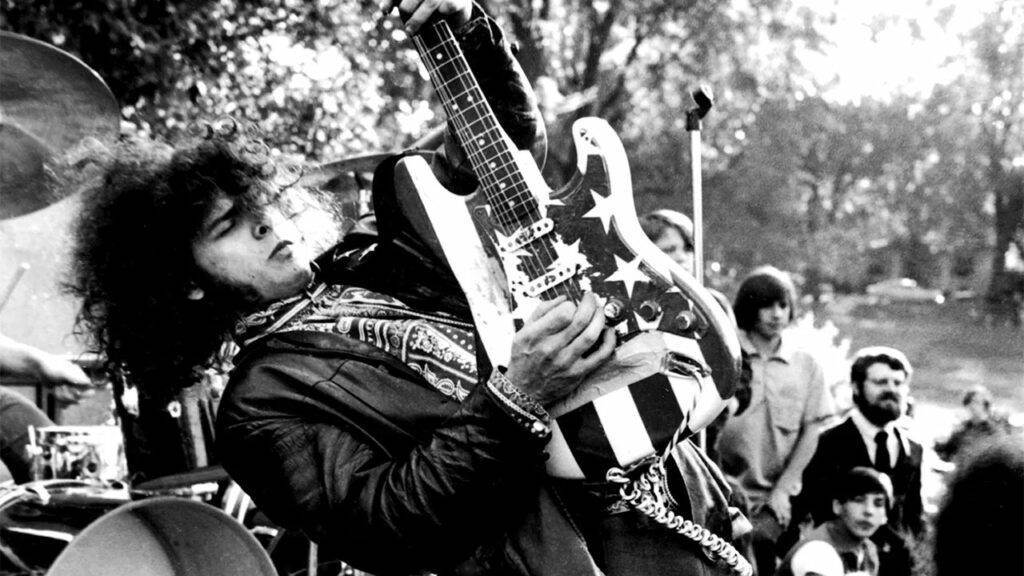The music world mourns the loss of Wayne Kramer, the iconic guitarist and co-founder of MC5, who passed away at the age of 75. In a post on his official Instagram account, the news was confirmed, citing the cause of death as pancreatic cancer. The announcement read, “Wayne S Kramer. Peace be with you. April 30, 1948 – February 2, 2024.”
Who Was Wayne Kramer?
The music world is mourning the loss of Wayne Kramer, the legendary guitarist who co-created MC5, one of the most influential and politically engaged bands in U.S. history. Born on April 30, 1948, in Detroit, Kramer’s impact on the rock scene reverberates through generations.

Wayne Kramer’s Death Reason
The news of Wayne Kramer’s passing was confirmed on his official Instagram account, stating that the cause of death was pancreatic cancer. The post, which announced his demise at the age of 75, read, “Wayne S Kramer. Peace be with you. April 30, 1948 – February 2, 2024”.
MC5: A Musical Force of Resistance
Wayne Kramer, along with Fred “Sonic” Smith and Rob Tyner, formed MC5 (Motor City 5) and quickly rose to prominence in Detroit’s music scene. Their incendiary live performances, often sharing bills with iconic bands like Cream, showcased their working-class roots and revolutionary zeal.
Their debut album, “Kick Out the Jams,” released in 1969, captured the raw energy of their live shows at Detroit’s Grande Ballroom. The album became synonymous with resistance, foreshadowing the punk rock movement of the 1970s.
“People said, ‘Oh wow, ‘Kick out the Jams’ means break down restrictions,’ and it made good copy, but when we wrote it, we didn’t have that in mind,” Kramer explained later.
Triumphs and Challenges
The band transitioned to Atlantic Records, releasing studio albums like “Back in the USA” (1970) and “High Time” (1971). However, commercial success eluded them, leading to bankruptcy and eventual disbandment in 1972.
Kramer faced personal challenges, including a stint in jail for drug-related charges. After his release in 1979, he navigated the underground music scene in New York City and worked as a carpenter during the 1980s, mostly out of the spotlight.
The Resurgence and Legacy
In the mid-’90s, Wayne Kramer made a comeback as a solo artist signed to punk label Epitaph Records. Despite the setbacks, he remained resilient. In 2001, he formed a supergroup to perform MC5 music, reigniting the band as a touring entity with various lineups.
The guitarist’s commitment to social causes was evident in his involvement with Billy Bragg’s Jail Guitar Doors initiative, providing musical instruments for prison inmates.

A Lasting Impact
Wayne Kramer’s influence extended beyond his musical career. In 2018, he released his memoir, “The Hard Stuff: Dope, Crime, the MC5, and My Life of Impossibilities,” reflecting on his tumultuous journey. His dedication to democracy and activism remained steadfast until his final days.
At the time of his death, Kramer was on the brink of releasing a long-awaited third studio album with MC5, scheduled for spring 2024. In an interview, he expressed the urgency of reigniting the spirit of 1968, emphasizing the need for unity in challenging times.
Wayne Kramer Dead: Farewell to a Legend
Former collaborator Tom Morello, guitarist with Rage Against the Machine, paid tribute to Kramer, stating, “Brother Wayne Kramer was the best man I’ve ever known. He possessed a one-of-a-kind mixture of deep wisdom & profound compassion, beautiful empathy, and tenacious conviction”.
Wayne Kramer leaves behind a legacy that transcends generations, influencing not only the sound of rock music but also inspiring social and political activism. As we bid farewell to this iconic guitarist, let us remember and celebrate the indelible mark he left on the world of music and beyond.


